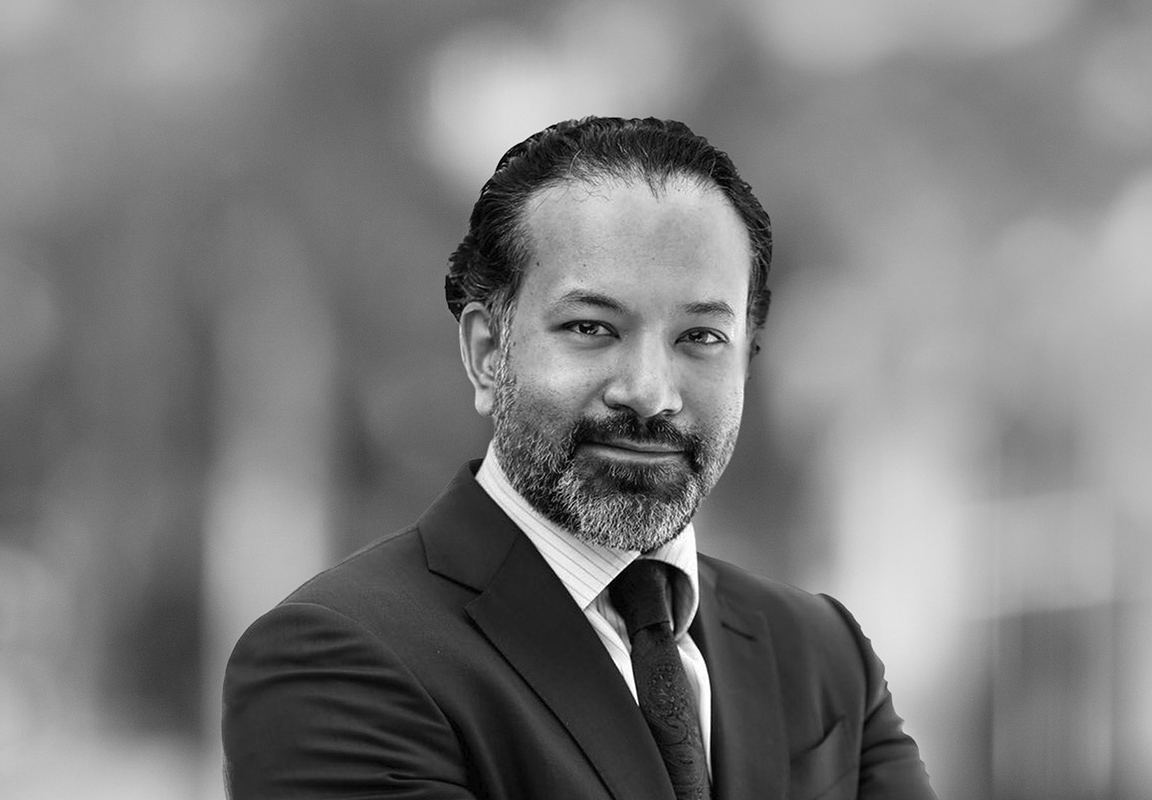
Islamic Finance 2.0: Innovation, Tokenisation, and the Evolution of Sukuk Markets in the GCC
8 min read
A digital transformation is quietly reshaping the Islamic capital markets of the Gulf Cooperation Council (GCC). Tokenised and fractionalised sukuk are redefining how Shari'ah compliant capital is structured, distributed, and accessed. By harnessing diverse digital technologies, these instruments are enabling new models for the issuance, trading, and management of Shari'ah compliant securities.
Historically, issuers of sukuk have been constrained by regulatory-imposed minimum investment thresholds, limited secondary market liquidity, and issuance structures reliant on manual processes. Today, that landscape is potentially evolving. Examples such as ADIB's Smart Sukuk platform enabling retail participation, Bahrain's INABLR offering plug-and-play "Sukuk-as-a-Service" via blockchain, and Dubai's real estate tokenisation initiative, demonstrate that financial infrastructure across the GCC is gradually moving toward a more digital and inclusive model.
In this article, we discuss three core elements of the evolving sukuk market: (i) practical innovations in the GCC and globally; (ii) regulatory frameworks enabling these transformations; and (iii) key strategic legal considerations for issuers, investors, and fintechs navigating this new landscape.
Innovations in Action: Case Studies from the GCC and Beyond
Against the backdrop of digital transformation, market participants across the region are piloting new models through live case studies in regulatory sandboxes and early-stage initiatives.
ADIB's Smart Sukuk – Retail Access through Digital Fractionalisation
Abu Dhabi Islamic Bank (ADIB) was an early mover in allowing for small-ticket access to sukuk with its Smart Sukuk platform launched in April 2025. The initiative enables smaller-ticket investors to participate via ADIB's digital banking app with a minimum investment of just USD 1,000, a steep reduction from the typical private-placement minimum ticket of USD 200,000. The fully digital, Shariah-compliant platform streamlines onboarding, suitability checks, investment selection, and automates portfolio management and profit distributions. Enabled in part by the UAE's regulatory sandbox, ADIB's model offers a roadmap for other banks in the region.
INABLR – "Sukuk-as-a-Service" via Blockchain Infrastructure
In Bahrain, INABLR has taken the concept a step further by offering a blockchain-based issuance and distribution platform for fractional sukuk. Following a successful graduation from the Central Bank of Bahrain's regulatory sandbox, INABLR is positioned as the first dedicated "Sukuk-as-a-Service" provider in the GCC region. Operating on the Tezos blockchain, the platform enables Islamic financial institutions to issue fractional sukuk with integrated KYC/AML compliance, digital custody solutions, and built-in Shariah checks. Its white-labelled, B2B model allows issuers to launch sukuk efficiently without building digital infrastructure in-house.
DLD–VARA – Tokenising Real Assets to Enable Sukuk Innovation
The Dubai Land Department (DLD) and the Virtual Assets Regulatory Authority (VARA) have launched a live digital property tokenisation framework in collaboration with market participants such as 'Ctrl Alt' and PRYPCO. The initiative enables real estate ownership records to be evidenced and transferred via digital tokens under regulatory oversight. This initiative paves the way for streamlined, digitised real estate-backed sukuk structures (including ijara-based models) reducing administrative friction for issuers while offering investors greater transparency and real-time visibility into the performance of underlying assets.
Obligat – A Global Parallel in Digital Sukuk Infrastructure
Outside the GCC, Switzerland-based Obligat offers an interesting indication of things to come. Operating under a regulated Capital Markets-as-a-Service (CaaS) model, Obligat facilitates the end-to-end issuance and lifecycle management of tokenised debt instruments, including sukuk, through blockchain and smart contracts. Obligat's system demonstrates how digital infrastructure can lower issuance costs, automate compliance, and improve distribution to global investors. Its model serves as a useful reference point as the GCC scales its own digital sukuk ecosystem.
Regulatory Dynamics: Enabling Innovation
The development of tokenised and fractionalised sukuk in the GCC has been supported by regulators creating structured environments for digital experimentation. Through targeted sandboxes and bespoke frameworks, authorities are facilitating innovation while maintaining focus on investor protection and Shariah compliance.
UAE: Multi-Regulator Enablement and Sandbox Success
Regulatory innovation across the UAE has played a central role in advancing digital sukuk structures. Through coordinated efforts by multiple regulators, including the Dubai Financial Services Authority (DFSA), the Financial Services Regulatory Authority (FSRA), and VARA, the UAE has established a forward-looking environment for testing and refining tokenised financial instruments. The DFSA's Tokenisation Sandbox has attracted strong interest from market participants exploring digital sukuk, while the Abu Dhabi Global Market's (ADGM) frameworks provide legal certainty for digital securities, enhanced by infrastructure partnerships such as its 2025 collaboration with Chainlink on smart contract interoperability. These frameworks not only foster innovation, but also enhance market confidence by providing clear legal perimeters for digital instruments.
At the infrastructure level, VARA's integration with the DLD has laid the groundwork for regulated real estate tokenisation—a critical step toward supporting asset-backed sukuk in digital format. Equally important, the successful launch of ADIB's Smart Sukuk was enabled by sandbox participation, offering a tangible example of how regulatory pilots can bridge innovation and Shariah compliance. Collectively, these initiatives underscore the role of regulatory enablement as a catalyst for market development, supporting the evolution of Islamic capital markets toward more accessible and digitally native models.
Bahrain: Early Mover on Digital Sukuk
Bahrain's Central Bank has distinguished itself by fostering a progressive regulatory environment for Islamic fintech. Its well-established sandbox framework allowed for structured testing of digital sukuk issuance models, providing companies like INABLR the regulatory elasticity to validate blockchain integration, investor onboarding protocols, and Shari'ah-compliant automation. More than a pilot programme, the sandbox serves as a scalable model for how regulators can facilitate real-world experimentation while maintaining supervisory rigour—positioning Bahrain as a viable testbed for digital Islamic capital markets.
Market Outlook and Legal Considerations
Growing Market Potential
As digital infrastructure matures and regulatory clarity improves, tokenised and fractionalised sukuk are poised to become scalable financing tools for issuers—particularly those seeking to broaden their investor base or tap into retail participation. The global sukuk market, valued at approximately USD 190 billion in 20241, is positioned for continued growth, with digital formats expected to capture a rising share by 2030. For mid-tier corporates, family offices, and Islamic banks, tokenised or fractionalised sukuk may offer a cost-effective alternative to benchmark-sized issuances, creating new on-ramps to the capital markets.
Investor Proposition
For investors, these structures present the opportunity to access Shari'ah-compliant assets in smaller denominations, with enhanced transparency over asset performance and automated profit distributions. The prospect of real-time traceability, potential for improved secondary market liquidity, and direct-to-investor platforms further strengthens the value proposition—especially as traditional models face pressure to adapt to next-generation investor preferences.
However, traditional non-digital and non-fractional sukuk continue to benefit from the structured distribution networks of major banks and lead managers, which remain critical for reaching large institutional investors. These investors often represent the largest subscribers in primary offerings, and it remains to be seen how effectively tokenised or fractionalised platforms will compete for this institutional demand—despite their potential to expand market access for small ticket participants. Investor education, particularly around blockchain security and Shari'ah compliance, will be key to building long-term trust in these platforms.
Legal and Regulatory Considerations
Realising these benefits will require deliberate legal structuring and careful regulatory navigation. Key issues include the enforceability of smart contracts, particularly when deployed cross-border; the need for regulatory alignment between securities law and digital asset regimes; and clarity around digital custody models—whether custodial or self-managed, including the mitigation of cybersecurity risks.
Dispute resolution frameworks must also account for the hybrid nature of these products, bridging conventional legal remedies with Shari'ah principles. While some platforms are incorporating automated Shariah compliance features, traditional Shari'ah board review and certification is likely to remain an important factor in ensuring investor confidence and market legitimacy.
Importance of Standardisation
Standardisation will be equally critical. A consistent legal and operational baseline—covering token terms, asset linkages, and smart contract triggers—will help mitigate execution risk, streamline regulatory approvals, and enhance investor confidence. As market infrastructure becomes increasingly interoperable, multi-jurisdictional alignment will be essential to support cross-border issuance and secondary trading.
Path to Scaled Adoption
With appropriate legal foundations, tokenised and fractionalised sukuk can move from early-stage pilots to becoming mainstream components of Islamic capital markets—enhancing efficiency, access, and transparency. The enabling posture of GCC regulators continues to support innovation, but sustained evolution of the legal framework, aligned with market developments, will be key to unlocking scaled adoption.
Looking Ahead
The digital evolution of sukuk markets in the GCC is advancing from pilot initiatives to operational models. Tokenised and fractionalised sukuk are well positioned to deliver tangible improvements in issuance efficiency, market accessibility, and investor participation, particularly among retail and mid-tier segments. Meanwhile, regional regulators are establishing the legal and supervisory frameworks needed to sustain innovation at scale.
Looking ahead, further progress will depend on the development of consistent legal treatment for digital securities, clarity around cross-border enforceability, and enhanced Shari'ah oversight of emerging structures. As the market matures, participants will need to integrate digital infrastructure with robust regulatory and contractual frameworks to ensure investor protection and legal certainty.
For stakeholders, the next phase is not just about experimentation, but about building scalable, secure, and compliant models. Institutions that move early, with the right legal and regulatory strategy, stand to define the standards that will govern Islamic capital markets in the years ahead.
White & Case has advised on several innovative sukuk transactions in the region, including green sukuk issuances, manafae and istisna-based structures, as well as novel local currency corporate sukuk issuances. Our multidisciplinary team delivers strategic, end-to-end counsel across Islamic finance, fintech regulation, and digital asset frameworks to assist clients with navigating this evolving landscape.
White & Case means the international legal practice comprising White & Case LLP, a New York State registered limited liability partnership, White & Case LLP, a limited liability partnership incorporated under English law and all other affiliated partnerships, companies and entities.
This article is prepared for the general information of interested persons. It is not, and does not attempt to be, comprehensive in nature. Due to the general nature of its content, it should not be regarded as legal advice.
© 2025 White & Case LLP


